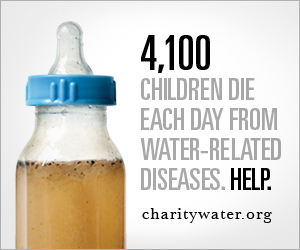 Windows XP was a great operating system for many years – that’s pretty much a user-wide consensus. But it was released in 2002 putting it at almost 12 years old – which is really, really old in the IT industry. Really. Old. On April 4, 2014, Windows XP, Office 2003, and Internet Explorer 8 will no longer be supported by Microsoft. This means no more security and bug patches or updates and much more vulnerability to viruses and other security issues. Google Apps have already discontinued support for IE8 more than a year ago and Microsoft’s team for their cloud services and online office suite, Office 365, had this to say about IE8 back in mid-2013:
Windows XP was a great operating system for many years – that’s pretty much a user-wide consensus. But it was released in 2002 putting it at almost 12 years old – which is really, really old in the IT industry. Really. Old. On April 4, 2014, Windows XP, Office 2003, and Internet Explorer 8 will no longer be supported by Microsoft. This means no more security and bug patches or updates and much more vulnerability to viruses and other security issues. Google Apps have already discontinued support for IE8 more than a year ago and Microsoft’s team for their cloud services and online office suite, Office 365, had this to say about IE8 back in mid-2013:
Office 365 will no longer support Internet Explorer 8 after 8 April 2014. For the best, richest experience with Office 365, we strongly recommend that you upgrade to the latest version of Internet Explorer. Internet Explorer 10 is available now, and Internet Explorer 11 is coming soon. Modern versions of Internet Explorer offer faster web browsing, integrated spell-checking, improved security, and more. Internet Explorer 8 users will not be blocked from connecting to Office 365 after 8 April 2014; however, Internet Explorer 8 users should expect slower performance with Office 365’s Outlook Web App and other Office Web Apps. If you experience a technical problem connecting to Office 365 from Internet Explorer 8 after 8 April 2014, Microsoft Customer Support and Service may need you to reproduce the problem on a supported browser.
And this about Windows XP:
Microsoft will end all support for Windows XP on 8 April 2014—please upgrade all Windows XP workstations to Windows 8 or Windows 7 prior to this date. While Office 365 will not block connections from fully patched Windows XP computers after 8 April 2014, connectivity to the service will be at risk. Windows XP workstations that have not deployed all service packs and automatic updates run an even higher risk of Office 365 connectivity issues after support for Windows XP ends. If you experience a technical problem connecting to Office 365 from a Windows XP machine after 8 April 2014, Microsoft Customer Support and Service will need you to reproduce the problem on a supported operating system.
It doesn’t seem like too big of a deal from those two messages, but I read it as, “These pieces of software are very old, offer no support for modern features, and you should expect little to no help from Microsoft if you’re still using XP and IE8”. You can find more information at Microsoft’s end of support page.
As for the end of Internet Explorer 8, with so many other great alternatives available (Google Chrome, Mozilla Firefox, and Apple Safari), there’s almost no excuse for still using IE8. To see why we’ve never really been a fan of IE8, check out our brief browser samples page where we show the differences between how browsers display web pages.
The Works IT has updated many laptop and desktop PCs to Windows 7 in the past year in anticipation of these changes. We’ve also used this news as a good catalyst to discuss the outright replacement of customers’ PCs with new or refurbished ones running Windows 8 or 7, respectively. These customers have been both individual home users and complete business fleets – none of which have experienced any issues during the upgrade process thanks to our planning, discussions, and tutorials that we offer. We have great prices on laptop and desktop PCs as well as affordable configuration and setup prices. With only 2 months until the end of life for these three major pieces of software, you should really be planning your upgrade, stat, if you haven’t already. Give us a call today to set something up or just ask questions.


